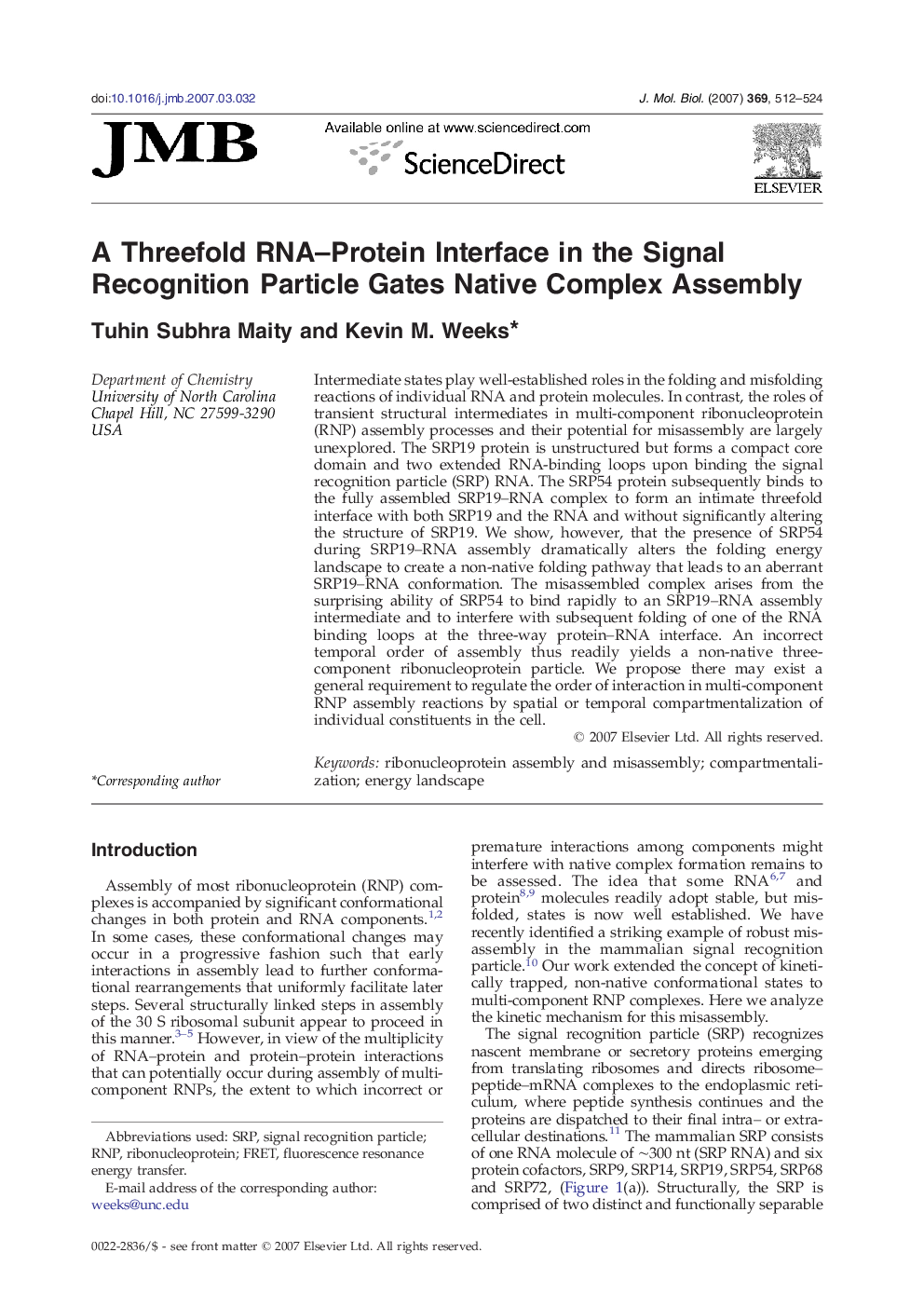| Article ID | Journal | Published Year | Pages | File Type |
|---|---|---|---|---|
| 2188593 | Journal of Molecular Biology | 2007 | 13 Pages |
Intermediate states play well-established roles in the folding and misfolding reactions of individual RNA and protein molecules. In contrast, the roles of transient structural intermediates in multi-component ribonucleoprotein (RNP) assembly processes and their potential for misassembly are largely unexplored. The SRP19 protein is unstructured but forms a compact core domain and two extended RNA-binding loops upon binding the signal recognition particle (SRP) RNA. The SRP54 protein subsequently binds to the fully assembled SRP19–RNA complex to form an intimate threefold interface with both SRP19 and the RNA and without significantly altering the structure of SRP19. We show, however, that the presence of SRP54 during SRP19–RNA assembly dramatically alters the folding energy landscape to create a non-native folding pathway that leads to an aberrant SRP19–RNA conformation. The misassembled complex arises from the surprising ability of SRP54 to bind rapidly to an SRP19–RNA assembly intermediate and to interfere with subsequent folding of one of the RNA binding loops at the three-way protein–RNA interface. An incorrect temporal order of assembly thus readily yields a non-native three-component ribonucleoprotein particle. We propose there may exist a general requirement to regulate the order of interaction in multi-component RNP assembly reactions by spatial or temporal compartmentalization of individual constituents in the cell.
